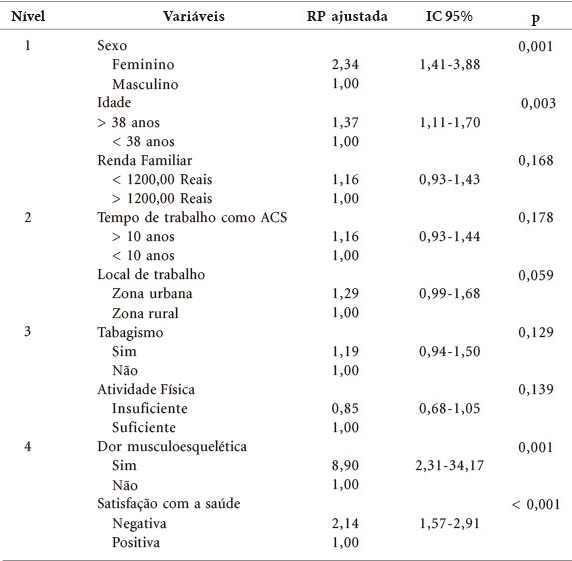This study examined the association of socio-demographic, occupational and risk and health behavioral factors with the loss of quality of life for community health agents of the municipality of Jequié in the state of Bahia. It is a cross-sectional study with 316 individuals, in which WHOQOL-Bref was used to evaluate the quality of life. The Poisson regression model was applied adopting the confidence interval of 95%. The variables associated with the largest threat to the Physical domain were gender, age, pain and satisfaction with health. Threats to the Psychological domain were schooling, psycho-social aspects, smoking, pain and satisfaction with health were analyzed. Threats to the Social Relations domain of were sex, marital situation, schooling, psycho-social aspects, and satisfaction with health. Threats to the Environmental domain were sex, family income, workplace, psycho-social aspects and satisfaction with health. It is hoped that this study will foster the development of public policies designed to enhance the conditions of life and work of this group of workers.
Quality of life; Occupational health; Community health agent




